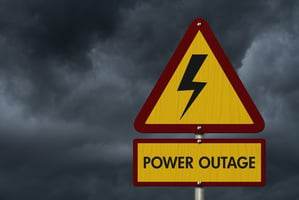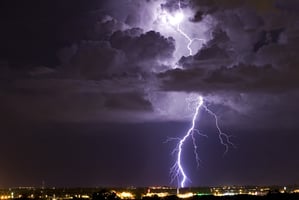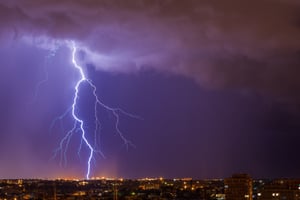When winter's frosty grip tightens on Washington, D.C., it brings with it the increased possibility...
Home Generator Options: Standby vs. Portable Power During Outages
 Power outages in the Washington, D.C. and Annapolis areas are happening more often than they used to. Whether it's a summer storm, an icy winter morning, or issues with aging infrastructure, losing power can be more than an inconvenience. For families with young kids, elderly relatives, or home-based medical devices, it's a real disruption, and could pose significant risk to children or aging parents. For that reason, many homeowners are turning to backup generators; when it comes to choosing between a standby generator and a portable one, the right choice depends on your needs, your home, and how involved you want to be when the lights go out.
Power outages in the Washington, D.C. and Annapolis areas are happening more often than they used to. Whether it's a summer storm, an icy winter morning, or issues with aging infrastructure, losing power can be more than an inconvenience. For families with young kids, elderly relatives, or home-based medical devices, it's a real disruption, and could pose significant risk to children or aging parents. For that reason, many homeowners are turning to backup generators; when it comes to choosing between a standby generator and a portable one, the right choice depends on your needs, your home, and how involved you want to be when the lights go out.
Why Backup Power Matters for Local Families
Outages around D.C. and Annapolis don't always come with much warning. A short flicker can turn into hours, or even days, without electricity. In homes where electricity powers everything from heating to essential medical devices, backup power becomes more than a luxury.
Generators give families peace of mind. You know your home can stay comfortable, food won't spoil, and devices stay charged -- even if the neighborhood goes dark.
Standby Generators: Hands-Off, Whole-Home Power
A standby generator is a permanent fixture installed outside your home. It connects directly to your natural gas or propane line and kicks on automatically seconds after the power goes out.
Families appreciate that there's no scrambling to plug things in or start the unit manually. These systems are sized to handle most or all of a home's electrical needs including heating, air conditioning, kitchen appliances, and lighting.
But with that convenience comes a larger investment. Installation involves permits, fuel connections, and often a concrete pad. Once installed, however, maintenance is minimal and operation is seamless. You may hear a weekly self-test run quietly in the background, but otherwise, the standby generator gets the job done without your direct involvement.
Portable Generators: Affordable, Flexible Backup
Portable generators are more hands-on but offer flexibility and a much lower upfront cost. These units are typically stored in a garage or shed and brought out when needed. They run on gasoline and must be refueled every 8–12 hours, depending on size and usage.
You'll need to manually start the generator and either plug in appliances directly or connect it to your home with a transfer switch. It won't power everything, but it can keep essentials like your fridge, lights, or phone chargers running.
One common mistake we see is underestimating where and how to place a portable unit. These generators must always stay outdoors, at least 20 feet from doors or windows, to prevent carbon monoxide buildup.
How to Choose the Right Generator for Your Home
Choosing the best backup power source starts with a few key questions:
- How often do you lose power? If outages are frequent or prolonged, a standby unit may make more sense.
- What do you need to keep running? Whole-house power requires a larger system. For essentials only, a portable unit might do.
- Do you want something hands-off? Standby generators run themselves. Portable ones require more work.
- What's your budget? Standby systems involve higher installation costs. Portable units are more budget-friendly but need more involvement.
Frequently Asked Questions
Do I need a permit to install a standby generator in D.C. or Annapolis?
Yes. Local jurisdictions typically require permits for standby systems. A licensed electrician can help navigate this process.
How far from the house should I place a portable generator?
At least 20 feet, with the exhaust pointed away from doors, vents, and windows.
Can a generator run my whole house or just a few things?
A standby generator can handle most or all circuits, depending on the size. A portable unit usually supports only a few key systems.
Need Assistance Choosing a Backup Power Option?
At Wilcox Electric, we've been helping families in Washington, D.C., and surrounding Maryland communities since 1989. With decades of residential experience, we understand what local homes need and what local codes require.
Whether you're thinking about a professionally-installed standby generator or just want guidance on using a portable unit safely, we're here to help. Contact us with any questions or for an estimate. If you're considering backup power for your D.C. or Annapolis home, we're happy to walk you through the options.




